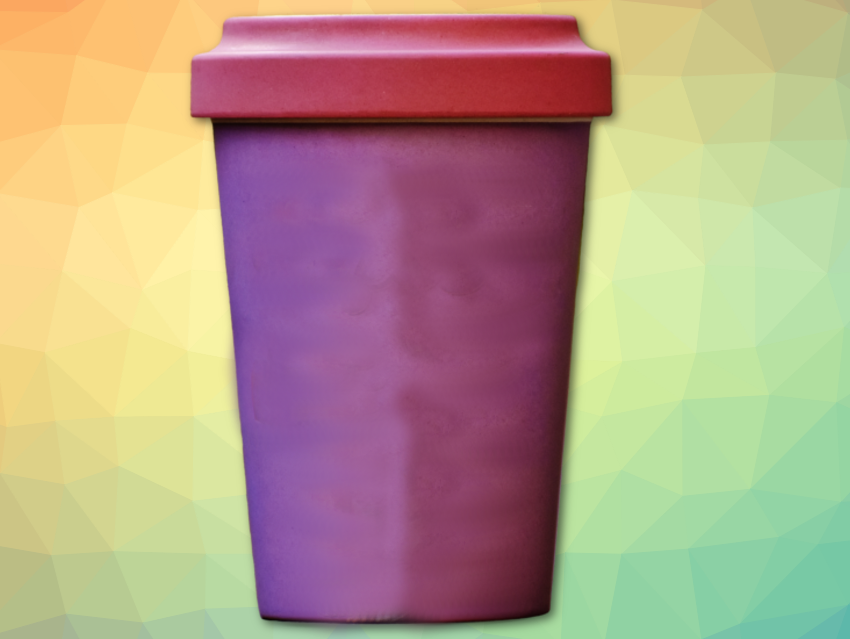The German consumer group Stiftung Warentest has found that reusable bamboo coffee cups designed to replace disposable cardboard and plastic takeaway containers can release harmful chemicals into hot liquids. Moreover, the mugs are not recyclable and do not biodegrade for years. So they end up in landfills or incinerators.
Stiftung Warrentest tested twelve different types of bamboo cups. Bamboo mugs are made by grinding bamboo into a powder and then mixing it with binding agents such as corn starch. Melamine resin, made of melamine and formaldehyde, glues the fibers together into a mug shape and provides a thick plastic surface.
In lab experiments, Stiftung Warentest put a slightly acidic, hot liquid (>70 °C) into the different bamboo mugs to simulate coffee and kept it at 70 °C for two hours. The consumer group repeated the experiment seven times per cup and tested the formaledehyde and melamine levels after the third and seventh experiments. In four of the twelve cups, the lab found very high levels of melamine after the third filling. Three more had very high levels after the seventh test. The lab also found formaldehyde in high amounts in the hot liquid. Putting a bamboo mug in the microwave to reheat a drink will cause the material to decompose, destroys the mug’s surface, and thus more formaldehyde and melamine will enter into the drink.
Melamine is suspected to cause diseases in the bladder and kidneys. Formaldehyde can irritate the skin, respiratory system, or eyes, as well as cause cancer in the nose and throat area when inhaled.
Because of the thick plastic layers and glue used in the manufacturing process, the lab found that the ‘eco-friendly’ mugs do not biodegrade for several years. The melamine cannot be separated from the bamboo in a recycling process. Therefore, unwanted mugs have to go to landfill or be burnt.
Bamboo is an evergreen perennial flowering grass. It has a higher specific compressive strength than wood, brick or concrete, and a specific tensile strength that rivals steel. Natural raw bamboo, untreated with melamine, does not pose the same danger. It is used for example for eating and drinking vessels, chopping boards, and other kitchen items.
- Bambusbecher im Test: Die meisten setzen hohe Mengen an Schadstoffen frei (in German),
Stiftung Warentest 23.07.2019





Is the convenience of using reusable bamboo cups worth the potential health risks of exposing yourself to dangerous chemicals leaching into your coffee?”,
“refusal